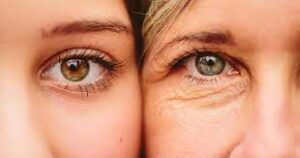Let’s dive into the mysterious world of free radicals, understand why they pose a threat to our skin, and explore how skincare can play a crucial role in combating their harmful effects. So, let’s unravel the secrets of these elusive foes and learn how to protect our skin!
Understanding Free Radicals:
To comprehend the concept of free radicals, it’s essential to have a basic understanding of chemistry. Simply put, free radicals are unstable molecules with unpaired electrons, making them highly reactive and capable of causing damage to our cells. These unruly molecules can be generated within our bodies due to normal metabolic processes or introduced from external sources such as pollution, UV radiation, and unhealthy lifestyles.
Free radicals behave like scavengers, hunting for their much-needed electron, for example, from skin or blood cells, leading to subsequent damage. Excess exposure to free radicals may lead to cell damage, disease and premature ageing They accumulate in the cells leading to protein, lipid and DNA damage.
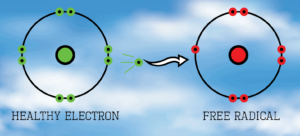
Free-Radical-and electron transfer
The Impact on Skin:
Free radicals are like the troublemakers of the skincare world. When they interact with our skin cells, they set off a chain reaction known as oxidative stress. This process can cause significant damage, leading to premature ageing, dullness, hyperpigmentation, fine lines, wrinkles, and even skin diseases. External factors such as pollution and UV rays intensify the production of free radicals, making them a constant threat to our skin’s health.
How are free radicals generated?
The body produces free radicals naturally through various normal, biological functions. For example, when you digest and break down food to produce energy, or as a result of stress and inflammation.
In addition, external sources have a role to play in the formation of free radicals, these include certain medications and drugs, X-rays, smoking, pesticides, pollutants, chemicals, heavy metals, bacterial infection and ultraviolet (UV) radiation through excessive sun exposure.
The role of antioxidants
Excess production of free radicals triggers a process known as oxidative stress, where free radicals are created more quickly than they can be neutralised. The good news is that antioxidants can provide a powerful defence mechanism, as they function by donating electrons to free radicals, which in turn helps to neutralise free radicals and diminish the damage.
Your body naturally produces antioxidants such as glutathione, CoQ10 and alpha lipoic acid. Other important antioxidants such as vitamins A, E, C, selenium, zinc, carotenoids, flavonoids and polyphenols can be obtained from a healthy diet and supplements. To protect the skin, you can also apply skincare containing antioxidant ingredients topically. Problems occur if your diet isn’t nutritious, you consume too many processed foods and drinks and your exposure to environmental sources of free radicals is high.
How to fight free radicals
The objective is to avoid oxidative stress where there is an excessive amount of free radicals and not enough antioxidants to eradicate them.
Diet
Eat antioxidant-rich foods
Good sources include fresh fruit and vegetables–broccoli, leafy greens, kale, beetroot, carrots, artichoke, asparagus, apples, lemons, blueberries, blackberries, bilberries, pomegranate, red grapes, onions, coriander–pecans, peppers, chilli, dark chocolate (over 70 per cent cacao), herbs and spices including oregano, cinnamon, clove, turmeric, ginger and basil.
Avoid pro-inflammatory food
Try to steer clear of processed foods, snacks such as crisps and biscuits, and refined grains such as white rice, bread, pasta, and breakfast cereals.
Reduce or cut out sugar
Free radicals are produced naturally when they are detoxified by the liver. Excessive amounts of sugar lead to an increased amount of free radical production, adding an unnecessary burden on the liver. This results in inflammation which initiates the formation of more free radicals, creating a vicious cycle.
Top up on antioxidants with supplements
Opt for vitamin C, quercetin, glutathione, resveratrol, selenium, lutein, and astaxanthin.
Lifestyle factors
Healthy Lifestyle: Skincare isn’t just about the products we apply; it’s also about how we take care of ourselves. Adopting a healthy lifestyle can significantly reduce the production of free radicals. Avoid excessive sun exposure at peak times (eg: midday-3 pm) and wear appropriate protective clothing–hats, sunglasses, and long sleeves. Apply SPF to all exposed areas of the skin. Reapply regularly throughout the day, and throughout the year, to reduce the risk of premature ageing and skin cancer. Adopting regular exercise, a balanced diet rich in fruits and vegetables, minimizing alcohol consumption, and quitting smoking are all beneficial steps towards healthier skin. Manage stress with daily mindfulness and self-care. Stress causes chronic inflammation that increases the formation of free radicals.
The role of Skincare:
Now that we understand the havoc free radicals can wreak on our skin, it’s time to discuss how skincare can come to the rescue. Thankfully, there are several effective ways to combat these elusive foes and protect our skin’s youthful glow.
Antioxidant skin care can help protect your skin from free radical damage. Ingredients include:
antioxidants: Incorporating antioxidants into our skincare routine is essential. Antioxidants work by neutralizing free radicals, preventing them from causing further damage. Look for skincare products containing powerful antioxidants such as vitamins C and E, green tea extract, resveratrol, and niacinamide. Pollution Defense: Living in urban environments exposes our skin to pollutants that contribute to the production of free radicals. Consider incorporating skincare products with pollution-fighting ingredients, such as activated charcoal, and moringa extract, into your routine to help counteract their damaging effects
Vitamin C
Vitamin C functions as an antioxidant suppresses melanin production, increases collagen and offers natural protection against UV radiation.
Niacinamide
A form of vitamin B3. Niacinamide is water soluble which means it is not stored in the body. Studies show that applied topically it can help to counteract the effects of free radicals. It has a brightening effect and can help improve texture and uneven skin tone, and minimise large pores, fine lines and wrinkles.
Resveratrol
A natural antioxidant (polyphenol) compound that plants make to protect them against external aggressors (eg: bacteria, fungi, UV rays). It is found in the skin of red and purple grapes, berries and other fruits. In a recent Polish study (2022), it was found that resveratrol can help to protect against premature skin ageing and oxidative stress caused by UV rays.
Vitamin E
A potent antioxidant that can help to protect against skin damage caused by solar radiation. It also has moisturising and anti-inflammatory properties.
Retinol
This derivative of antioxidant vitamin A, retinol stimulates collagen, accelerates cell renewal and helps to repair damaged DNA.
Hyaluronic acid
Best known for its hydrating properties, it also has an antioxidant effect and can help protect the skin against free radical damage.
Sunscreen: UV rays from the sun are one of the primary external sources of free radicals. Protecting your skin with broad-spectrum sunscreen is crucial. Opt for a sunscreen with a high SPF, preferably SPF 30 or higher, and apply it generously before sun exposure.
We recommend
Medik8 Daily Radiance Vitamin C SPF 30 is a two-in-one moisturiser that combines the protective, antioxidant benefits of vitamin C with a broad-spectrum SPF30 sunscreen. It also contains vitamin E and hyaluronic acid which work synergistically to boost the antioxidant effect.
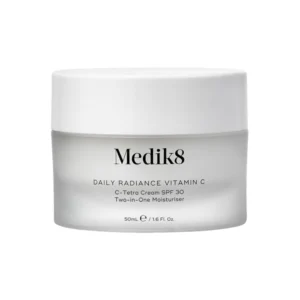
Medik8-Daily-Radiance-Vitamin-C
La Roche Posay 10 Niacinamide Serum is formulated with 10% niacinamide and will suit the most sensitive complexions to protect, brighten, and even skin tone and reduce the appearance of dark spots and pigmentation. This gentle serum also combines hyaluronic acid to help retain skin moisture.
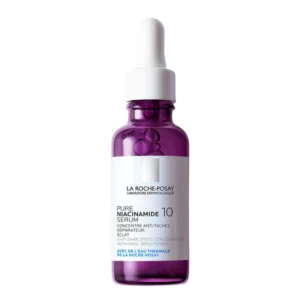
La Roche Posay Pure Niacinamide 10 Serum
Skinceuticals B E Resveratrol Night Serum contains resveratrol, baicalin (flavonoid derived from Chinese herbs) and vitamin E to help neutralise free radicals and strengthen your skin’s natural defences. Apply at night to help improve skin tone, firmness and diminish fine lines.
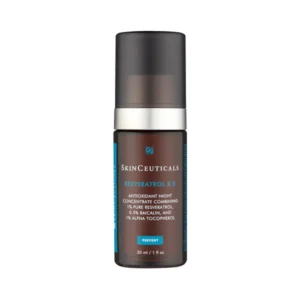
SkinCeuticals Resveratrol B E
Avene A-Oxitive Antioxidant Defense Serum is a light serum, formulated with therapeutic, natural Avene thermal water, vitamins C and E and hyaluronic acid to provide a gentle yet potent shot of antioxidant protection.
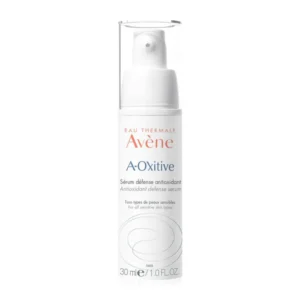
Avene-A-Oxitive-Antioxidant-Defense-Serum
So there we have it, the take-home message
Free radicals may be invisible, but their effects on our skin are all too visible. Being mindful of these troublemakers is crucial if we want to maintain a youthful and healthy complexion. By incorporating antioxidant-rich skincare products, wearing sunscreen diligently, adopting a healthy lifestyle, and implementing pollution defence strategies, we can create a powerful shield against free radicals. Let’s take charge of our skincare routine and protect our skin from these invisible enemies for a radiant and resilient complexion that stands the test of time. Remember, prevention is the key to keeping your skin flawless and glowing!
Keep glowing and stay amazing

